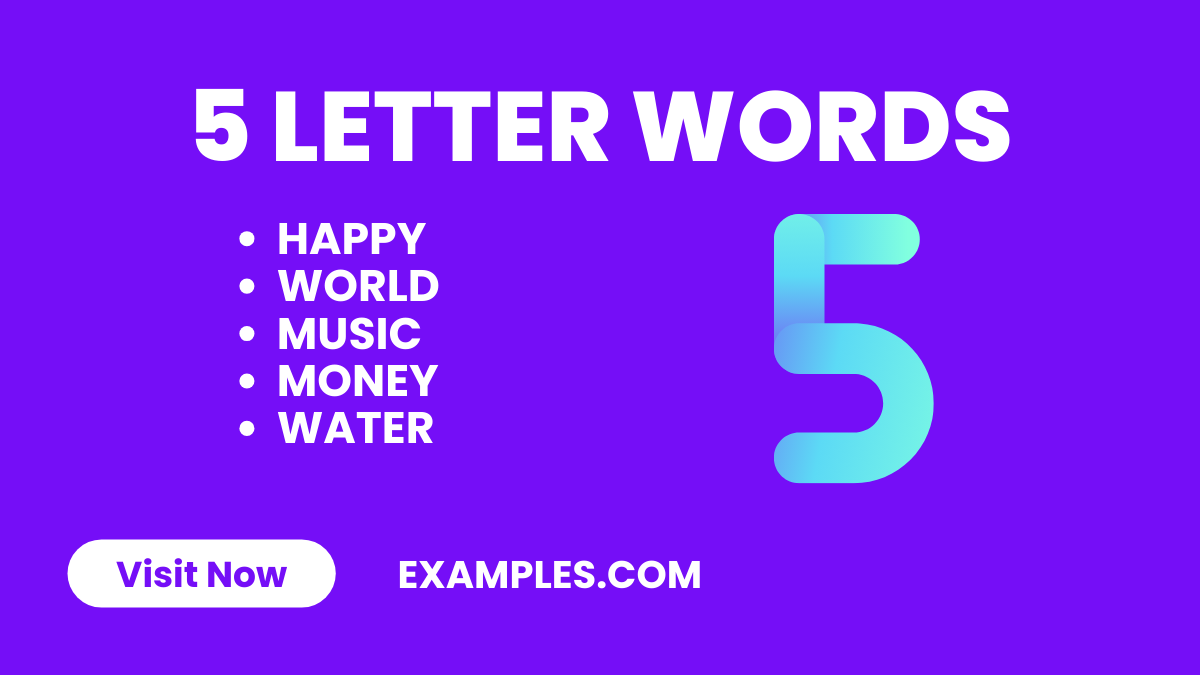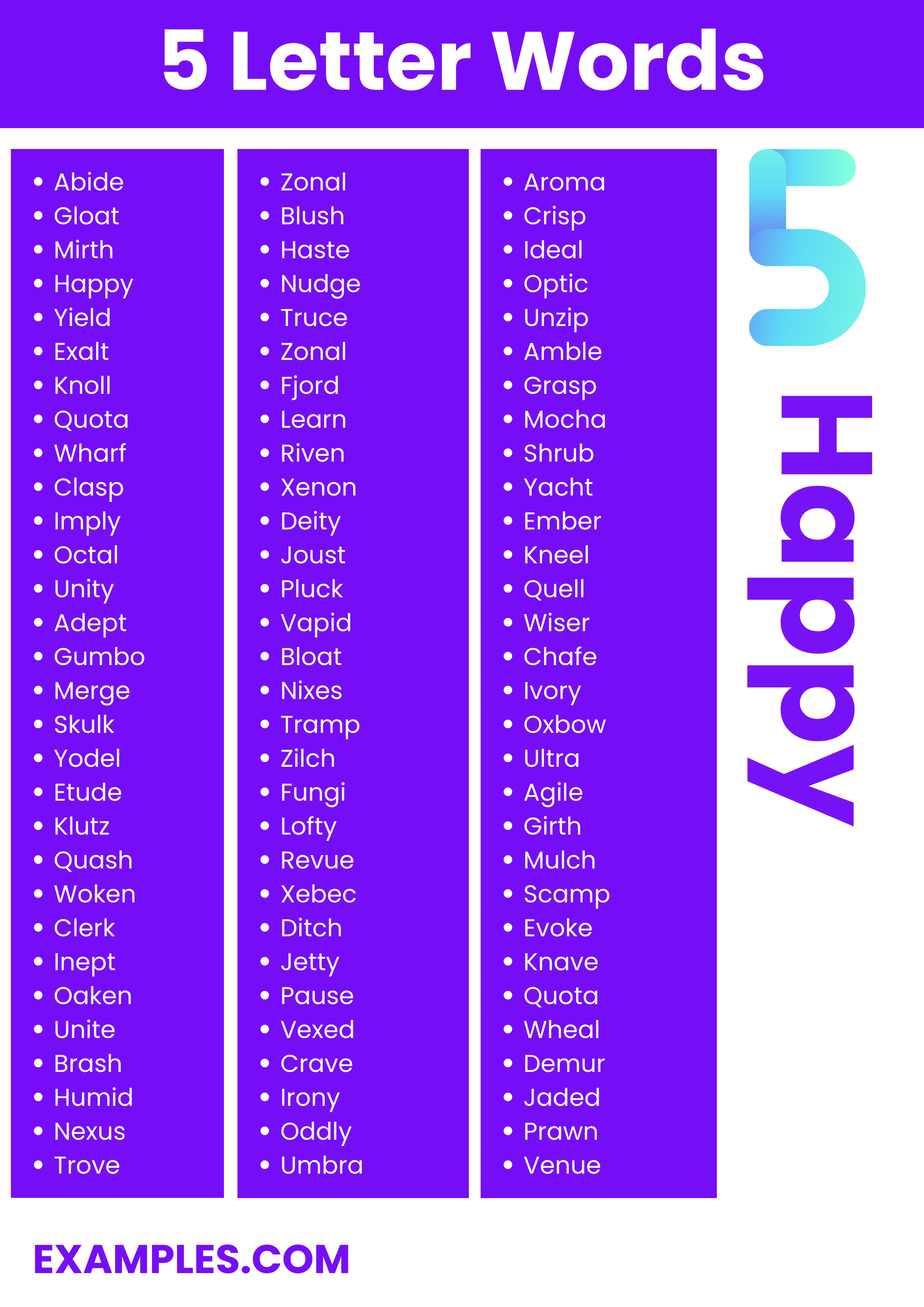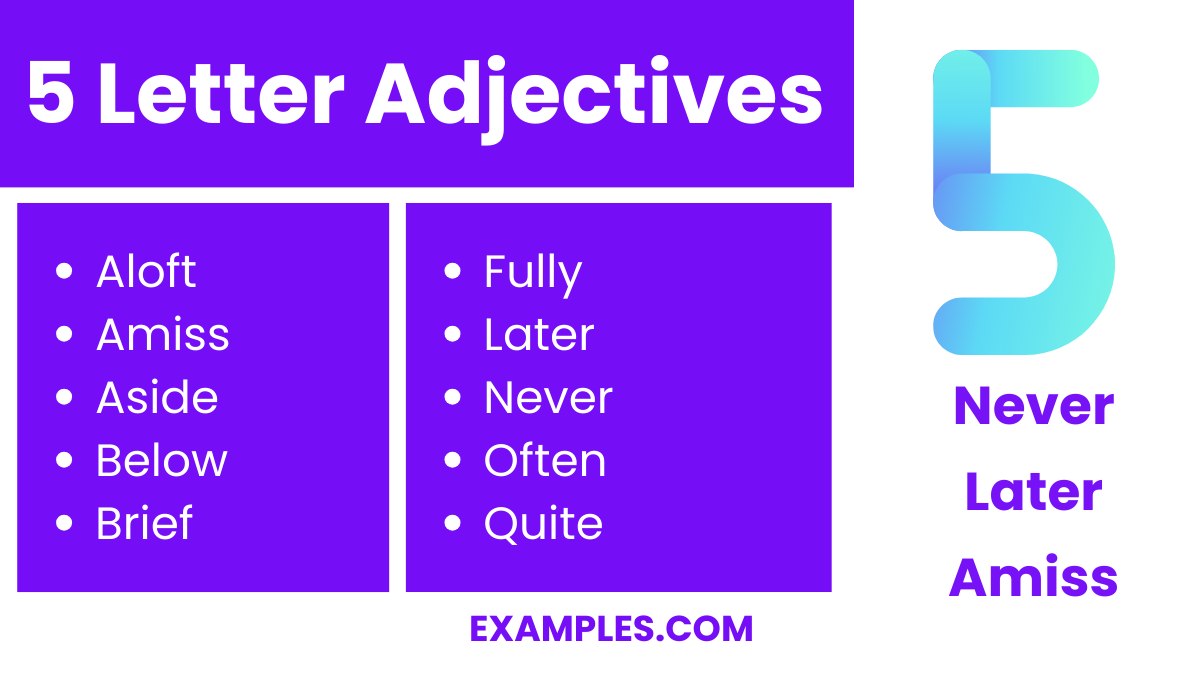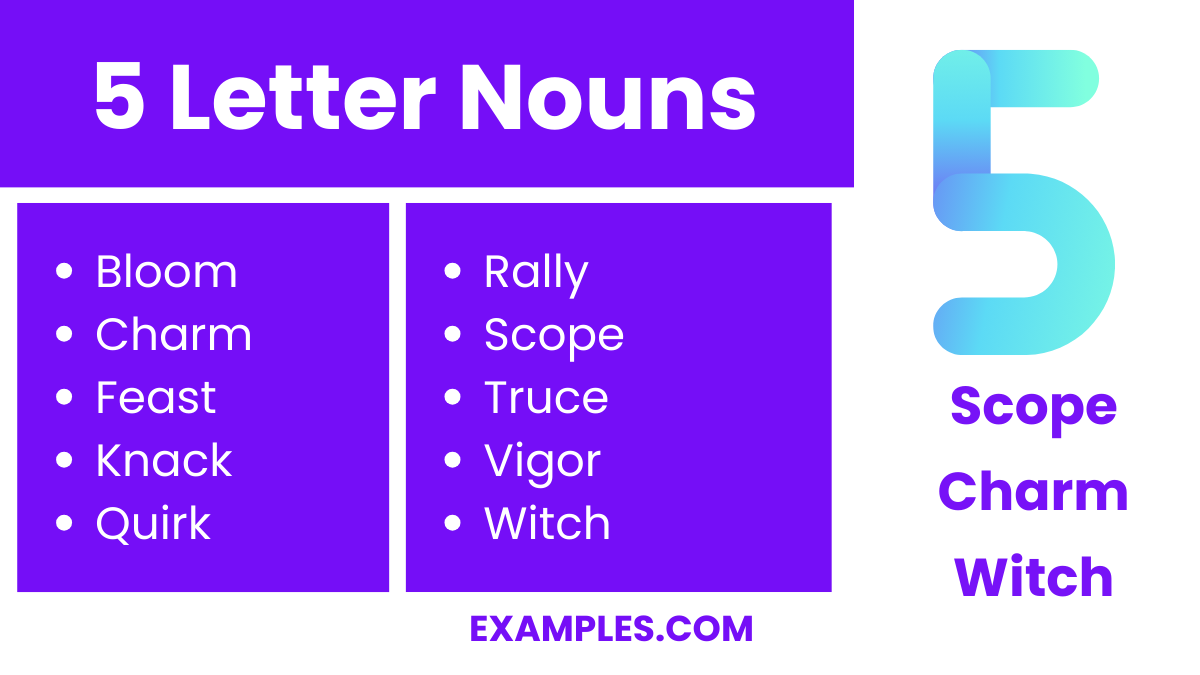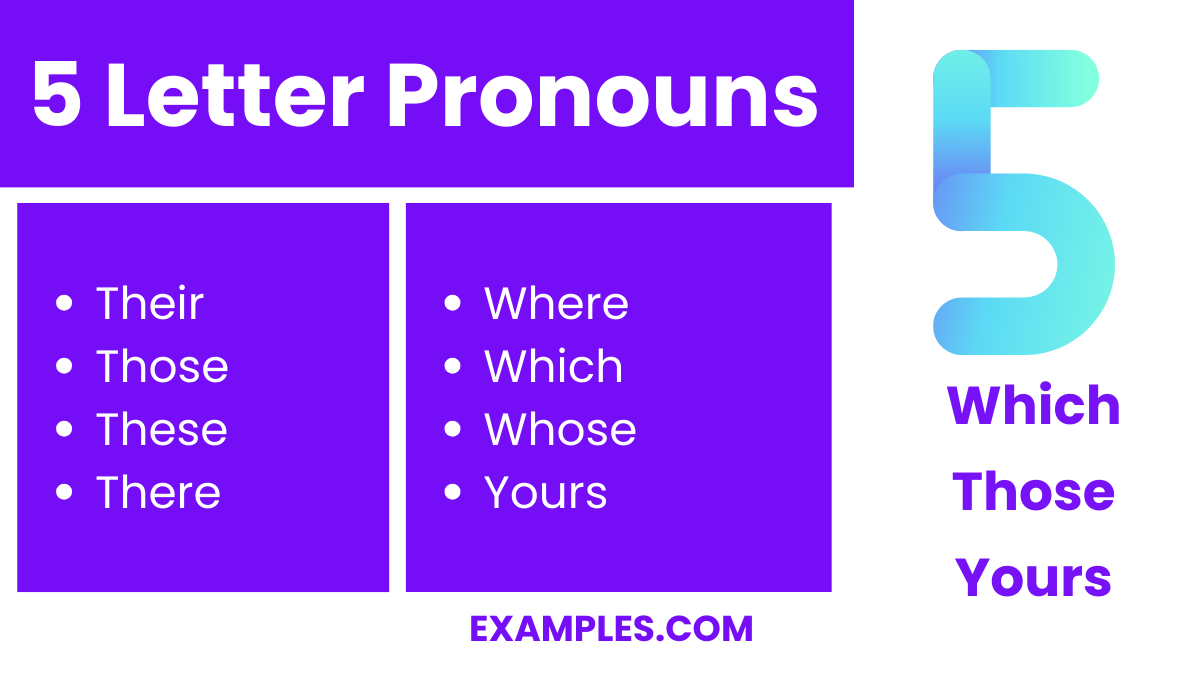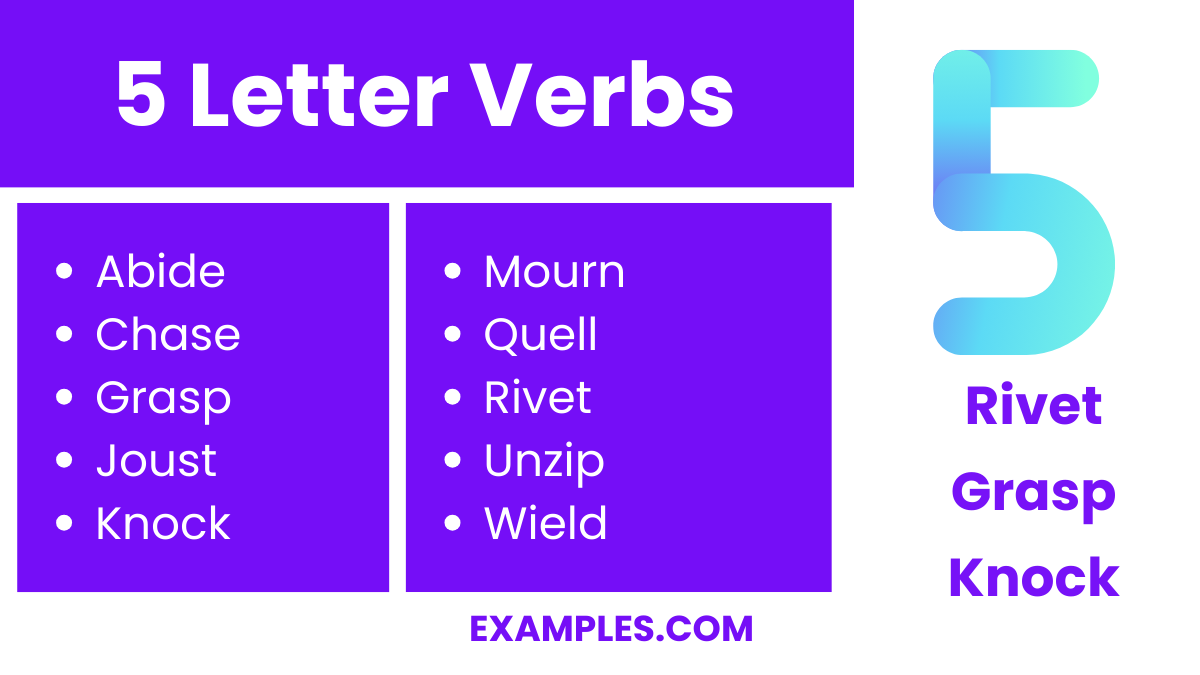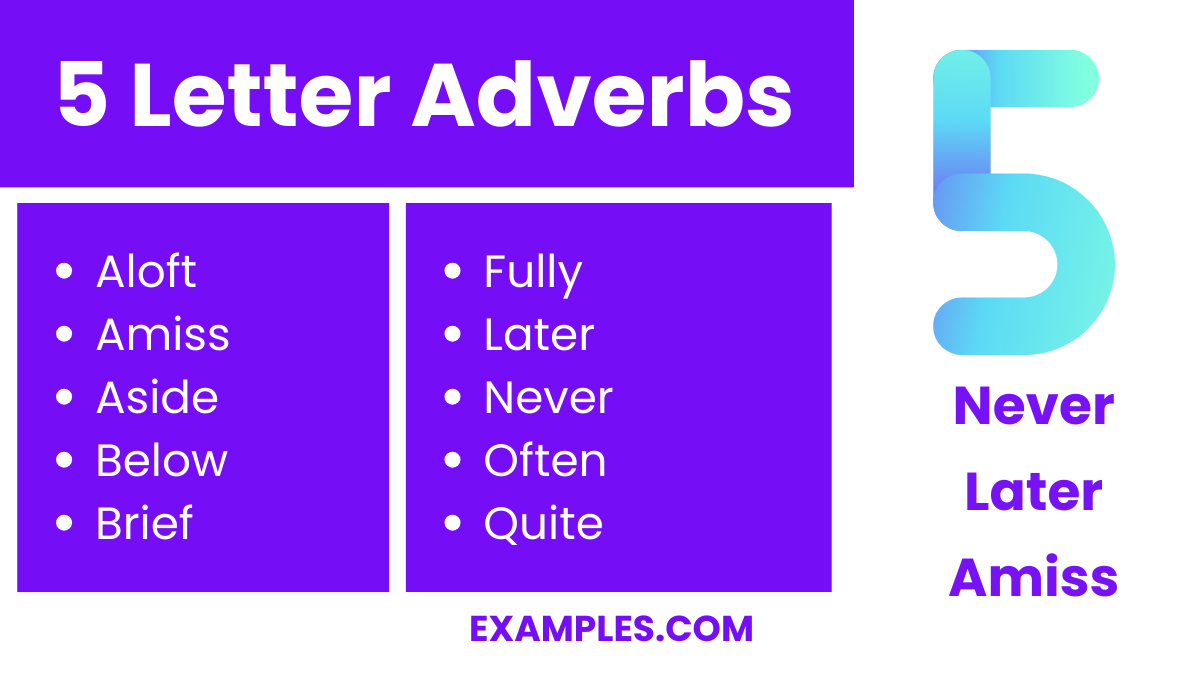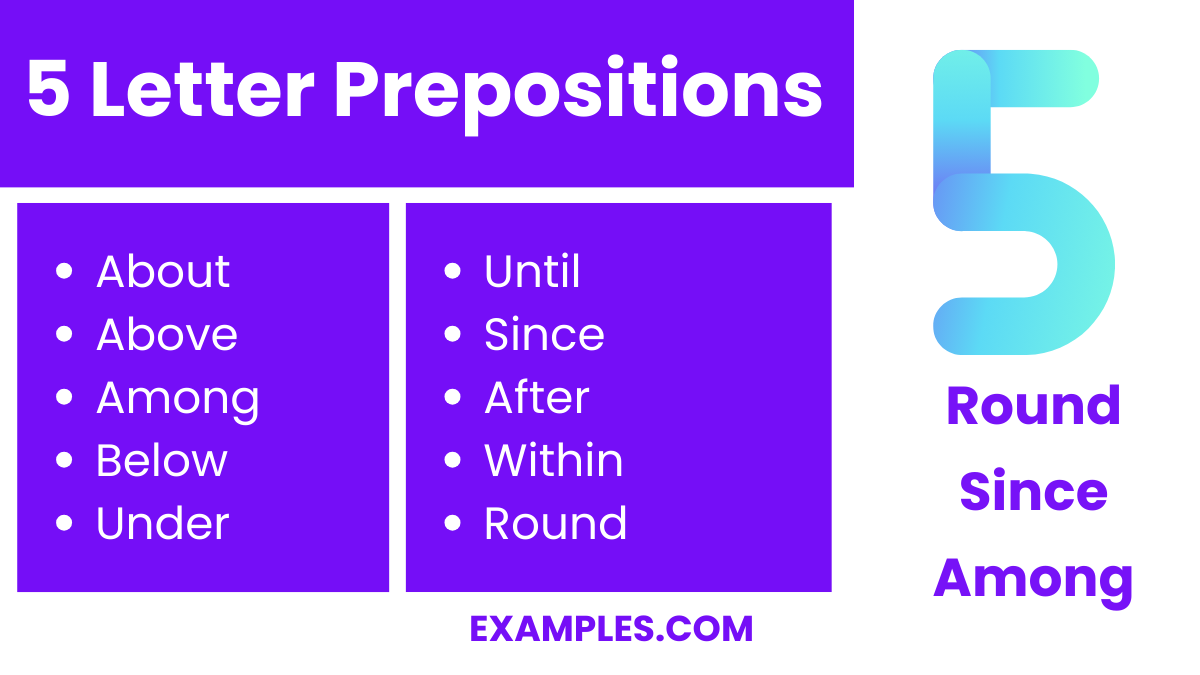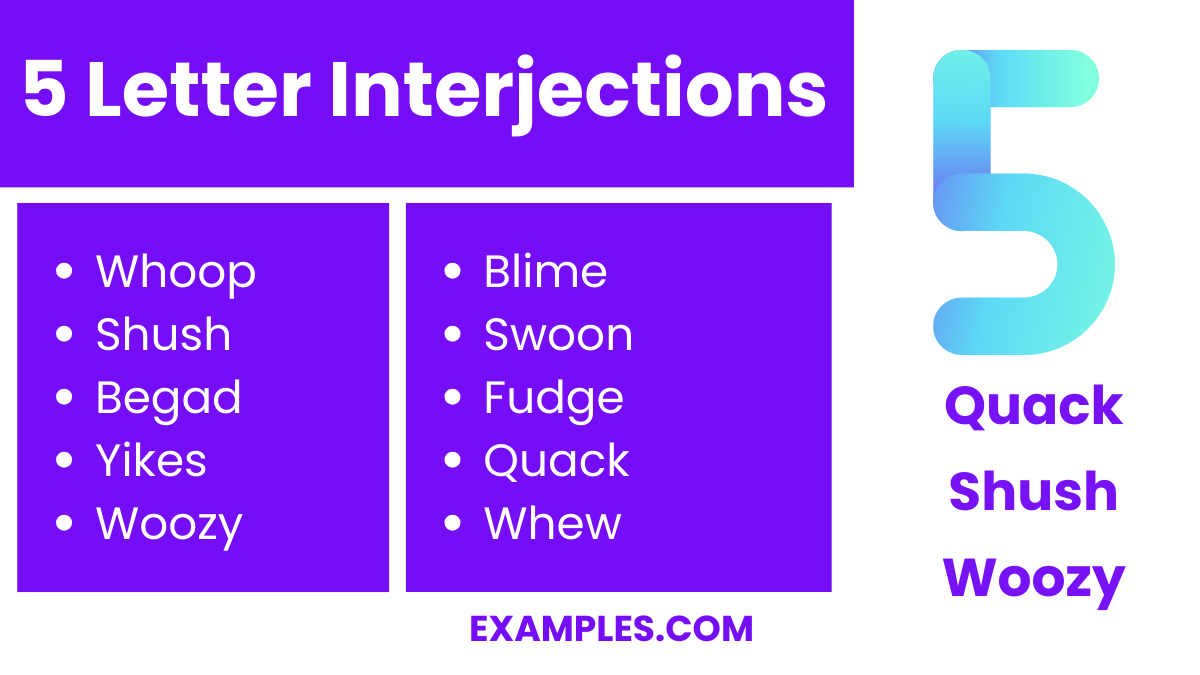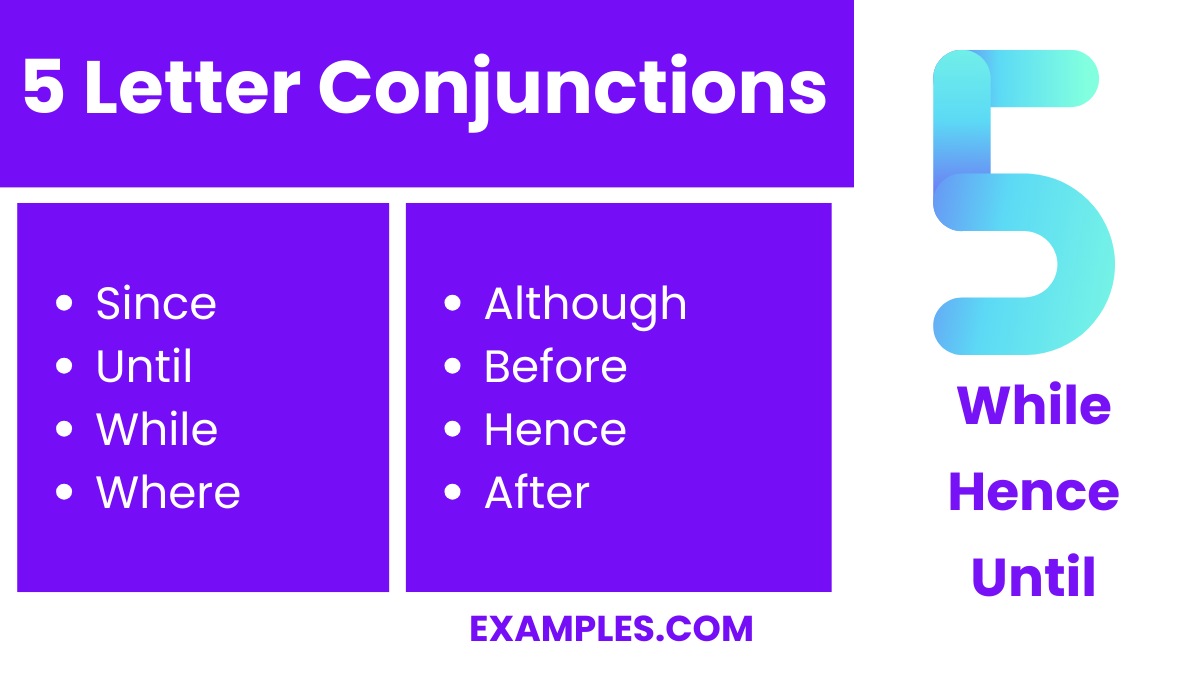5 Letter Words
Dive into the fascinating realm of 5-letter words, a sweet spot in the English language where brevity meets substance. This diverse collection blends simplicity with depth, offering words that fit perfectly into puzzles, poetry, and prose. Ideal for enhancing vocabulary, these words are crucial for effective communication, striking the right balance between being concise and expressive. Whether you’re a language lover, a curious learner, or a seasoned wordsmith, exploring 5-letter words opens up new avenues for creativity and clarity in your linguistic journey.
Most Commonly used a 5 Letter Words - PDF
180+ Most Commonly used a 5 Letter Words
In crafting engaging content, the choice of words plays a pivotal role in capturing and retaining the attention of readers. This collection of unique five-letter words is tailored to enrich your vocabulary, enhance your writing, and provide a valuable resource for creative endeavors. From common terms to more obscure ones, each word is selected for its potential to add depth and variety to your writing, making your content more appealing and accessible to a wide audience. Whether you’re looking to spice up your prose, craft compelling stories, or simply expand your lexical repertoire, this list serves as a treasure trove of linguistic gems.
| Abide | Zonal | Aroma | Blurt | Warty | Rhyme |
| Gloat | Blush | Crisp | Dwelt | Chalk | Xenia |
| Mirth | Haste | Ideal | Jolly | Elope | Draft |
| Swoon | Nudge | Optic | Plumb | Knack | Flair |
| Yield | Truce | Unzip | Vowel | Quirk | Lapse |
| Exalt | Zonal | Amble | Brisk | Wield | Roast |
| Knoll | Fjord | Grasp | Hefty | Churn | Drape |
| Quota | Learn | Mocha | Nifty | Inlay | Joist |
| Wharf | Riven | Shrub | Twang | Ovate | Prank |
| Clasp | Xenon | Yacht | Zesty | Usher | Vixen |
| Imply | Deity | Ember | Fluke | Align | Brawn |
| Octal | Joust | Kneel | Lithe | Glint | Hover |
| Unity | Pluck | Quell | Ridge | Mange | Nymph |
| Adept | Vapid | Wiser | Xerox | Spelt | Throb |
| Gumbo | Bloat | Chafe | Dwell | Yearn | Zippy |
| Merge | Nixes | Ivory | Jumpy | Elude | Frock |
| Skulk | Tramp | Oxbow | Palsy | Knurl | Latch |
| Yodel | Zilch | Ultra | Vouch | Query | Roust |
| Etude | Fungi | Agile | Bluff | Whelp | Xylem |
| Klutz | Lofty | Girth | Hoard | Cinch | Droit |
| Quash | Revue | Mulch | Nomad | Indie | Jowls |
| Woken | Xebec | Scamp | Tweak | Opine | Pique |
| Clerk | Ditch | Evoke | Zebra | Unfed | Valet |
| Inept | Jetty | Knave | Flirt | Aloud | Berth |
| Oaken | Pause | Quota | Leapt | Grime | Hatch |
| Unite | Vexed | Wheal | Rally | Modem | Navel |
| Brash | Crave | Demur | Yodel | Smelt | Tilde |
| Humid | Irony | Jaded | Enact | Zings | Audit |
| Nexus | Oddly | Prawn | Kiosk | Folly | Glean |
| Trove | Umbra | Venue | Quest | Lurid | Mound |
List of 5 Letter Words
5 Letter Adjectives
Embark on an exploration of 5-letter adjectives, the versatile and powerful descriptors that add precision and color to our language. These adjectives are the perfect tools for crafting vivid imagery, conveying emotions, and sharpening narratives. Ideal for writers seeking the right word to fit a tight line, students expanding their academic vocabulary, or anyone looking to express themselves more effectively, this collection showcases the richness of English in just five letters. From capturing the essence of a scene with pinpoint accuracy to adding nuance to character descriptions, these adjectives enhance our ability to communicate complex ideas and feelings succinctly. Delve into our curated selection to enrich your vocabulary and elevate your linguistic expression.
- Brave: Showing courage; ready to face and endure danger or pain.
- Crisp: Having a fresh, clean quality; also describes food that’s firm and fresh.
- Blunt: Having a dull edge or end; not sharp, or straightforward in manner.
- Adept: Highly skilled or proficient in a particular area.
- Gleam: Shining brightly, especially with reflected light.
- Gruff: Having a rough, harsh voice; coming across as slightly rude or lacking refinement.
- Lofty: Of imposing height; also refers to being elevated in character or spirit.
- Slyly: In a cunning and deceitful or manipulative manner.
- Vivid: Producing powerful feelings or strong, clear images in the mind.
- Wryly: In a way that expresses dry, especially mocking, humor
5 Letter Nouns
In the realm of English vocabulary, five-letter nouns hold a special place. They are compact yet powerful, capable of conveying a broad spectrum of concepts, objects, and ideas succinctly. These words are essential for writers, educators, and students aiming to enhance their communication skills or enrich their written work. Incorporating these nouns into your vocabulary can significantly impact the clarity and precision of your expression.
- Bloom – The flower of a plant or the state of flowering.
- Charm – An object believed to bring good luck or a quality that attracts or fascinates others.
- Feast – A large meal, typically a celebratory one.
- Knack – A skill or an ability to do something easily and well.
- Quirk – A peculiar behavioral habit or an unexpected twist.
- Rally – A mass meeting of people showing support for a cause or a significant recovery in prices in a financial market.
- Scope – The extent of the area or subject matter that something deals with or to which it is relevant.
- Truce – An agreement between enemies or opponents to stop fighting or arguing for a certain time.
- Vigor – Physical strength and good health.
- Witch – A woman thought to have magic powers, especially evil ones
5 Letter Pronouns
Diving into the realm of 5-letter pronouns offers a unique perspective on the versatility and specificity language holds in personalizing and refining our communication. Pronouns are the agile components of speech that replace nouns, providing efficiency and clarity in our sentences. They help us avoid repetition, build coherence, and navigate the social complexities of language by indicating possession, gender, and number.
- Their: Belonging to them.
- Those: Referring to something previously mentioned.
- These: Referring to something close to the speaker.
- There: In, at, or to that place or position
- Where: in or to what place or position.
- Which: Used in questions to ask for specificity among a definite set of items
- Whose: Used in questions to ask about ownership or relation
- Yours: Belonging to or associated with the person or people that the speaker is addressing
5 Letter Verbs
In the world of content creation, verbs are the engines of sentences, propelling narratives forward and adding action to descriptions. Particularly, five-letter verbs offer a concise and impactful way to convey actions, making them invaluable tools for writers aiming to craft vivid and engaging content. Incorporating these verbs into your writing can significantly enhance the dynamism and readability of your text, making it more appealing to readers and search engines alike.
- Abide – To accept or act in accordance with a rule, decision, or recommendation.
- Chase – To pursue in order to catch or catch up with.
- Grasp – To seize and hold firmly.
- Joust – To engage in a sports contest in which two opponents on horseback fight with lances.
- Knock – To strike a surface noisily to attract attention, typically in order to gain entry to a building.
- Mourn – To feel and show deep sorrow or regret for (someone’s death), typically by following conventions such as the wearing of black clothes.
- Quell – To put an end to (a rebellion or other disorder), typically by the use of force.
- Rivet – To attract and completely engross someone.
- Unzip – To open a zipper.
- Wield – To hold and use (a weapon or tool).
5 Letter Adverbs
Enhancing your writing with carefully chosen adverbs can significantly impact the clarity and vividness of your prose. In the realm of English vocabulary, 5-letter adverbs offer a unique blend of brevity and meaning, making them invaluable tools for writers aiming to create concise yet powerful sentences. These adverbs, though compact, can dramatically shift the tone, pace, and depth of your narrative or argument, providing nuanced directions to the action they describe
- Aloft – Up in the air; overhead. This adverb is used to describe something that is positioned high up or in the sky, often conveying a sense of elevation or flight.
- Amiss – In a wrong or imperfect way. It is utilized to indicate that something is not right, suggesting a deviation from the norm or an error.
- Aside – To one side; out of the way. This adverb is often used in conversations or narratives to denote a comment or action that deviates from the main topic.
- Below – At a lower level or layer. It indicates that something is situated beneath something else, often used to describe physical positioning or ranking.
- Brief – For a short time; quickly. It suggests a concise period or swift action, emphasizing the efficiency or speed of an occurrence.
- Fully – Completely or entirely. This adverb is used to emphasize totality or completion, indicating that no part has been left out or overlooked.
- Later – At some time in the future; after the present time. It denotes a subsequent point in time, often referring to events that have yet to occur.
- Never – At no time in the past or future; not ever. This absolute term is used to express a strong negation, indicating that something has not happened or will not happen.
- Often – Frequently or many times. It is used to indicate regularity or a high frequency of occurrence, highlighting repetition or commonality.
- Quite – To a very significant extent; truly or considerably. This adverb is used to emphasize the degree or extent of something, often enhancing the adjective it modifies
5 Letter Prepositions
Navigating through the intricacies of English grammar reveals the subtle power of prepositions in shaping our communication. Among these, 5-letter prepositions offer a fascinating glimpse into how language structures spatial, temporal, and other relational contexts with precision and nuance. These prepositions, though specific in form, are vast in function, guiding us through the complex landscapes of meaning and interaction. Ideal for linguists, writers, educators, and students alike, a deeper understanding and use of these connectors can significantly enhance clarity and coherence in both written and spoken language.
- About: Concerning; on the subject of.
- Above: At a higher level or layer than.
- Among: Surrounded by; in the company of.
- Below: At a lower level or layer than.
- Under: Beneath and covered by.
- Until: Up to the point in time or the event mentioned.
- Since: From a past time until now.
- After: In the time following (an event or another period of time).
- Within: Inside the limits of.
- Round: Located or situated on every side
5 Letter Interjections
Interjections are a fascinating aspect of language, offering a unique way to convey emotions, reactions, and expressions in a succinct and impactful manner. These small but mighty words can add flavor and depth to our conversations and writing, making them more lively and expressive. In the English language, five-letter interjections are particularly interesting, as they occupy that sweet spot of being brief yet expressive enough to capture a wide range of sentiments.
- Whoop – A sound of excitement or joy, often used to express triumph or happiness.
- Shush – A command to be quiet or to stop making noise, often used in a hushing manner.
- Begad – Used to express surprise or for emphasis.
- Yikes – Used to express shock or surprise, often in response to something unexpected or frightening.
- Woozy – Feeling unsteady, dizzy, or dazed, often from a shock or surprise.
- Blime – A shortened form of “Blimey,” expressing surprise or astonishment.
- Swoon – Used to express faintness or overwhelming emotion, often in a romantic context.
- Fudge – A mild expletive or interjection used to express dismay or frustration.
- Quack – An imitation of a duck’s sound, sometimes used humorously to indicate that something is not to be taken seriously.
- Whew – An expression of relief or surprise, often used after a narrow escape or when something is finished
5 Letter Conjunctions
Exploring the landscape of English grammar reveals the specialized role of conjunctions in linking thoughts, ideas, and clauses, creating complex, nuanced expressions. Among these, 5-letter conjunctions stand out for their specificity and function, weaving together parts of sentences with precision and harmony. This dive into the realm of conjunctions not only enriches our understanding of language mechanics but also enhances our ability to craft cohesive and compelling narratives.
- Since: Used to indicate the time from which something started.
- Until: Marks the continuation of a situation up to a point in time.
- While: Indicates that two events happen at the same time.
- Where: Used to introduce a clause in which the location of something is mentioned.
- After: Refers to following in time or order.
- Although: Used to introduce a subordinate clause in which a contrasting situation is mentioned.
- Before: Indicates an event that occurs earlier than another.
- Hence: Used to indicate a consequence or a result from the given situation
Popular 5 Letter Words for Word Games
Diving into the world of word games, the strategic use of 5-letter words can be a game-changer, offering a fascinating blend of challenge and opportunity. These words strike a perfect balance, being neither too short for minimal points nor too long for the game’s constraints. Ideal for enthusiasts of Scrabble, Boggle, Words with Friends, and other word puzzles, mastering a repertoire of 5-letter words enhances your competitive edge. This guide highlights popular 5-letter words that frequently turn the tide in word games, each accompanied by its meaning. By integrating these words into your strategy, you can surprise opponents, maximize your scores, and enrich your vocabulary. Let’s explore some of these powerful 5-letter words that can help you excel in word games.
- Blaze: A strong flame or fire.
- Quirk: A peculiar behavioral habit.
- Joust: A combat between two knights with lances on horseback.
- Flair: Natural talent or style.
- Gloat: To express self-satisfaction over one’s own success or another’s misfortune.
- Knack: A skill or an ability to do something easily and well.
- Nymph: A mythological spirit of nature imagined as a beautiful maiden inhabiting rivers, woods, or other locations.
- Query: A question, especially one addressed to an official or organization.
- Vivid: Producing powerful feelings or strong, clear images in the mind.
- Witty: Showing or characterized by quick and inventive verbal humor
Unusual 5 Letter Words
Embark on a linguistic adventure with our curated list of unusual 5-letter words. These words, nestled in the corners of the English language, are gems waiting to be discovered and used. Perfect for those looking to spice up their vocabulary, writers seeking the exact expression, or curious minds aiming to explore the depths of language, this collection promises to intrigue and inspire. Each word is a doorway to richer narratives, more vivid descriptions, and conversations that leave a mark. Dive into the diversity of language and let these unique selections expand your linguistic horizon, enriching your vocabulary with their rarity and charm.
- Abode: A place of residence; a house or home.
- Brink: The edge of land before a steep drop or body of water.
- Craic: Fun and entertainment, especially good conversation and company.
- Doyen: The most respected or prominent person in a particular field.
- Elope: Run away secretly to get married, especially without parental consent.
- Fjord: A long, narrow, deep inlet of the sea between high cliffs.
- Gawky: Awkward; ungainly.
- Hovel: A small, squalid, unpleasant, or simply constructed dwelling.
- Inure: Accustom (someone) to something, especially something unpleasant.
- Joust: A sports contest in which two opponents on horseback fight with lances
Tips to Improve Your 5 Letter Words Skills
Tips to Improve Your 5-Letter Words Skills
- Frequent Reading: Dive into a wide range of reading materials. Books, articles, and blogs rich in vocabulary expose you to new 5-letter words in context.
- Play Word Games: Engage in word games like Scrabble, Boggle, or word search puzzles. These games are not only fun but also sharpen your word recognition and recall skills.
- Use Flashcards: Create flashcards with 5-letter words and their meanings. Regular review helps reinforce memory and understanding.
- Write Daily: Incorporate new 5-letter words into your daily writing. Journals, social media posts, or emails can be great platforms for practice.
- Learn a Word a Day: Challenge yourself to learn and use a new 5-letter word every day. This steady pace makes learning manageable and effective.
- Mobile Apps: Utilize vocabulary-building apps designed to enhance your word skills through interactive exercises and quizzes.
- Join a Study Group: Connect with others interested in improving their vocabulary. Sharing and discussing new words can boost retention.
- Contextual Learning: Instead of rote memorization, learn words by associating them with stories, images, or emotions to make them stick.
- Use Mnemonics: Create mnemonic devices to remember difficult words. Associating words with familiar patterns or phrases can aid recall.
- Practice Consistently: Regular practice is key to improvement. Dedicate a specific time each day to work on your vocabulary.
Mastering 5-letter words enriches your vocabulary, sharpens your linguistic skills, and opens new avenues for effective communication. By embracing diverse reading materials, engaging in word games, and practicing consistently, you can significantly enhance your command of these words. Whether for personal growth or competitive edge, the journey to expand your 5-letter word knowledge promises both challenge and reward.



